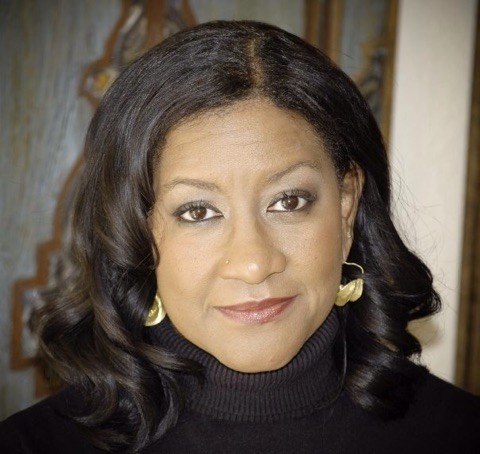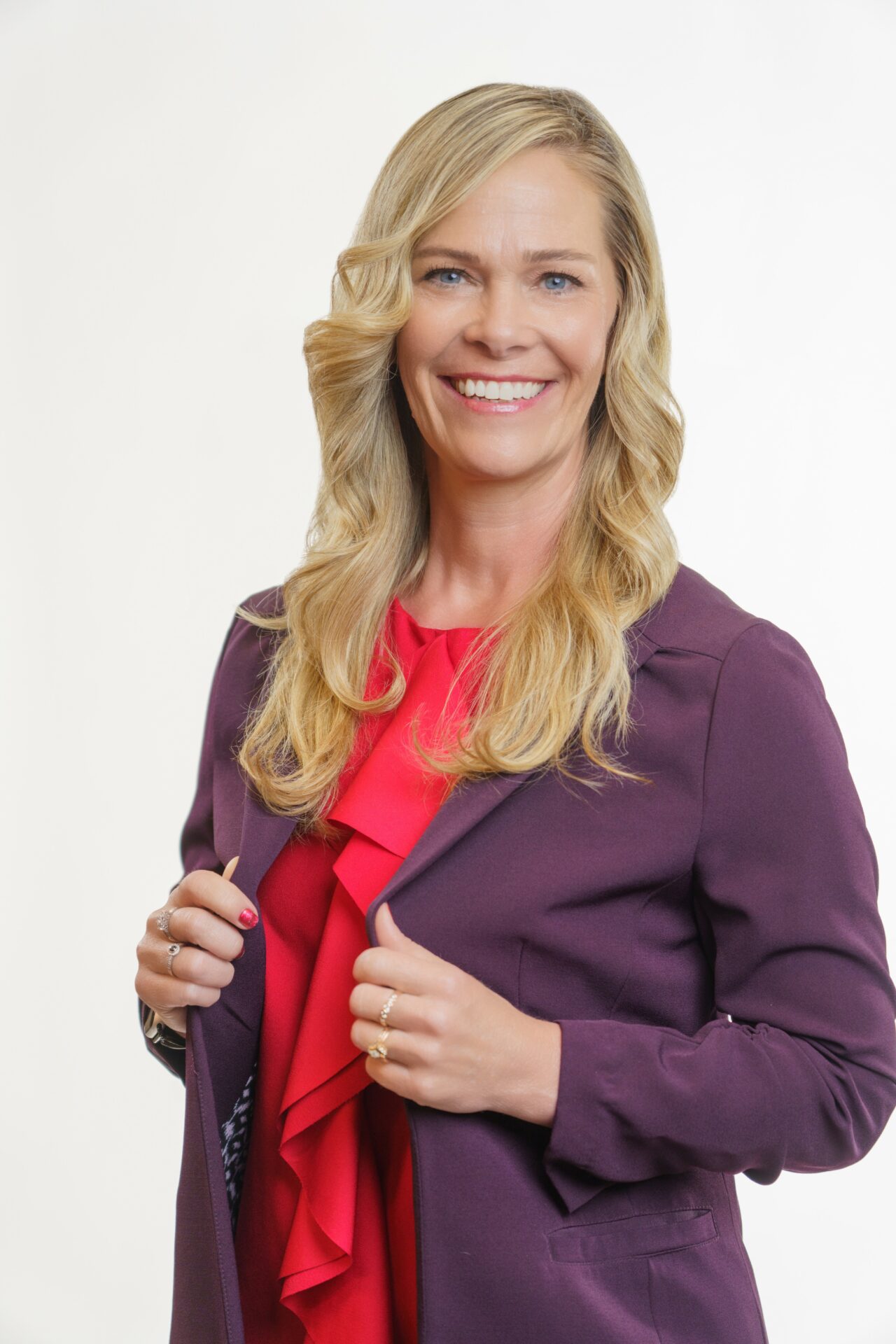What do you do when no one else in the company or the meeting looks like you? We asked entrepreneurs and creatives from across industries and geographies to share their experiences and advice.
Patricia Manley

At the beginning of my immigration journey I really wanted to blend knowing that the only thing I could change was my accent I decided that I wanted to talk as a native english speaker. However one thing change my perception of this when during a presentation skills course that I was taking the facilitator told me that I will never would be ever to sound like a native speaker but instead I should be proud of my unique accent, my looks and my energy because I was going to be always memorable and I could use this to my advantage instead of my weakness. Read more>>
Shaneisha Dodson

I’ve learned that being the only one in the room who looks like me sometimes comes with challenges such as being second guessed, having people over talk you, or having someone question everything that you do even though you are competent. I’ve learned to be successful by being confident in myself and maintaining my integrity. I don’t allow other people’s perception of me influence my ability to do my job. Read more>>
Slesha Patel

When I was younger, being the only one in the room that looked like me used to stress me out because I just wanted to fit in and be like everyone else. In the corporate world, being the only one that looked like me made me feel frustrated when I considered the lack of diversity and barriers to entry in certain roles. Read more>>
Kristen Silva

In spaces where I am the minority, I find freedom in establishing what success looks like to me. I think it’s easy to hold ourselves to idealized versions of what our dreams and goals should look like, or how long it takes to earn that. Certainly, unlearning my expectations of what it means to find success and be successful has made a tremendous impact on my ability to navigate those spaces. Often, I find that I am presently and actively in the spaces I thought I would have difficulty reaching. Read more>>
Missy Spears

I think it’s critical for queer leaders to expand their presence from lgbtq+ focused spaces, and to make sure that we are involved, active, and respected in spaces that weren’t necessarily built for us. Prior to my role at Queer Kentucky, I became active in spaces that were traditionally dominated by straight white men. Spaces that were becoming lgbtq+ friendly but not lgbtq+ focused (various nonprofits, boards, networking and professional development circles, local governments, community advocacy groups, politics, and private business clubs). Read more>>
The Loopy Spoonie

At face value, I may seem to be the only one in the room that looks like me, but that doesn’t mean I’m the only one in the building who does. Meaning that, it could feel like I’m creating for an extremely specific type of person, and that type of person may not be within eyesight so it may look futile. But that doesn’t mean that type of person isn’t out there somewhere, looking for exactly the type of work I’m specializing in. Read more>>
Anastasia Rose Music

Women make up only about 20-25% of the professional music industry. Fewer than that are lead songwriters and producers (approximately 3.4%-12.7%). At most shows, I am the only female to touch the stage. If I’m not, I’m usually only accompanied by 1-2 others for a 4 band bill. Being a woman in any male-dominated industry is hard to say the least. It requires tenacity, high self-efficacy, and self-advocacy. Read more>>
Dinma Nmaele-Afam

I am probably the only Nigerian ghostwriter I know in the flesh. I happened upon the job or would I say it happen to me. I have always been a writer, I started reading newspapers at age 6 to my dad and his friends when they came to the house. he was so proud of me and he would show me off so it became a big deal to always make him prouder than he was the last time read, so I would upgrade a new word, hold my head a bit higher and stand straighter with no dancing while I read. Read more>>
Shalita Shantae

Subject: Response for Bold Journey Magazine Feature on Being the Only One in the Room Dear Bold Journey Magazine Editorial Team, I am honored to contribute my perspective to the panel discussion on “Being the only one in the room: How have you learned to be effective/successful even when you are the only one in the room that looks like you.” As a 43-year-old Black woman, CEO, and Principal Agent with over a decade of experience in the predominantly white male-dominated financial services industry, I believe my journey holds valuable insights. Read more>>
Melissa Schainker

An artist thrives on individuality. If we look to the voices from the past, the most successful painters, musicians and pioneers in the arts have always marched to the beat of their own drum. I always made art and music from a very young age. I have this innate desire to create. Often that meant I was “the odd duck” and the person who chose the path least taken. Read more>>
Katherine Fox

Throughout my process so far, growing up and facing the challenges every human on this planet has to face. I have met face to face with anxiety, curiosity, fear, doubt, and the struggle to find purpose in this world. Despite all of the fear I faced, whether in school, out in the streets, or in the comfort of my own home, I couldn’t understand the structure society had put on everyone. I was alive, but never felt like anything I did had any meaning. Read more>>
Regina Weatherspoon-Bell

I can remember as far back as adolescent when I was taking professional dance classes and attending what was then referred to as charm school, being the only brown girl in the room. After High School as I started on my career quest in the entertainment industry quite often, I was the only person of color who was in the room amongst management and executives who was not an artist. What I learned was how important it was to have a strategy and be intentional about my seat at the table. Read more>>
Akanksha Manna

Embrace being an only: Recognize that being the “only one” in the room can be an opportunity rather than a disadvantage. Embrace the recognition of your talents and the open door it represents . Tackle self-doubt and build confidence: Overcome imposter syndrome by acknowledging that if you were invited into the room, you belong there. Make it your responsibility to be an integral part of the conversation and place yourself firmly at the table. Read more>>
Joshua Lozano

Looking like how I look has always made it difficult to prove my worth to others; going back to my childhood. Honestly most of how I learned to be effective and show my worth has been through patience and silence. as the quote goes..“The whole point of being quiet is so that you can be heard when you do have something important to say. Hard work speaks for itself—it doesn’t need an introduction or a sales pitch.” Read more>>
Allison Harlow Clark

Working in an construction adjacent industry you are often the only woman on the job site. In the early years of my career I found this super intimidating. Often the contractors, plumbers, electricians on the job site were older men and you could tell they would look down on me because of my age and gender. I got a lot of that “ok little girl” attitude right out of the gate. In order to be successful in that context I had to work 2x as hard to prove myself. Read more>>
Nury Castillo Crawford

Being the only one in the room has been a journey of self-discovery and resilience for me. As a first-generation brown Latina who immigrated from Peru to the USA at the age of almost 11, I’ve learned to navigate spaces where I may be the only one who looks like me. Embracing my cultural identity with confidence has been key, allowing me to bring a unique perspective to the table. Effectiveness in such situations comes from cultivating cultural competence, effective communication, and continuous learning. Read more>>
Austin W. Bergman

I figured this out at a young age, there was only one person that I could model myself with was Oprah. When you have the it factor and you can walk into a room, and everybody realizes who you are. At a young age, it was very hard to grasp that. I could walk into a room shake hands, and if I left one person out that person told me, I never said hello to them. So when I got older learned to grass that. Read more>>
Sade Simmons

As an artist of color hailing from a city rich in diversity, being the only one in the room has been a journey of resilience and empowerment. In such moments, I draw strength from the cultural mosaic of my upbringing, recognizing the beauty and strength that arises from diversity. I’ve learned to navigate these situations by embracing my unique perspective and using it as a source of creative inspiration. Read more>>
Trisha Stetzel

Navigating the business landscape as one of the few female veteran executive, leadership coach, and business owner in a male-dominated environment requires a strategic blend of resilience and strategic acumen. Embracing my own unique perspective as a strength, drawing upon the diverse experiences that come with being both a veteran and a woman. I now use this to offer innovative solutions and perspectives that may not be present in these male-dominated spaces. Read more>>
Ariel Panowicz

This is a really important question for me. For so many years, I felt that because I was a short woman with bright red hair and tattoos that I would never be able to be seen as a serious business woman in certain rooms. I constantly felt this voice inside my head telling me I needed to fit into a certain box if I were ever going to be successful or taken seriously. Well, turns out, that mindset isn’t really for me. Read more>>
Kevan Sharperson

As I continue to build upon my success, a lot of doors open to rooms with influential and powerful individuals. These rooms serve as a melting pot of successful people from all walks of life. Almost instantly, you notice that in some of these rooms, you are the only black man in attendance. It is enough to make anyones nerves get the best of them. However, in my experience I realized that these people were once just like me. Striving to succeed and be the best version of themselves everyday. Read more>>
Kwadwo Adae

It is true that strength comes numbers, however, when you’re the only one in the room that looks like you, that does not negate any of the strength that you hold within you. There will always be people that agree, or disagree with you regardless of what you look like. When you keep putting good intentions into the world, someone out there will see your vision. In my experience it has always been worth the time to figure out who those people are in your world. Listen, support and respect them. Let them inspire you and let them be inspired by you. Read more>>
Annick Duvivier Ligonde

Being the only one in the room as a “Haitian woman artist” has taught me to embrace my identity, be confident and take space, show up professionally and authenticity. I have represented my country Haiti many times in Museums, International Art Fairs as the only Haitian woman artist. It’s scary and exciting at the same time when my paintings are hanging next to international master artist. Building meaningful relationships with people in my field helped me to create a network. Read more>>
Tyshawn Jaimson

By embracing my true self, I have gained invaluable wisdom in not allowing my insecurities to overpower me. I have learned to disregard the fear of being overshadowed by others and instead exude unwavering confidence in who I am, where I am heading, and where I am destined to be. It has allowed me to remain fully present, self-aware, and approachable while controlling my actions and thoughts. Read more>>
Chanda Hopkins

Being the only one in the room or being the only one at the table has been a running theme throughout my life. I grew up on a military base and was often the only black girl in my class. I didn’t think anything of it because there were kids there of all ethnicity’s and no one paid any attention to that stuff. We were all military brats so I think that experience put something in me to just be myself. There was never any racial pressure. The focus of our lives was on study and play and just being happy. We all played together. Read more>>
Sumbul Ali-Karamali

My entire life and career have been shaped by this very issue — being the only one like me in the room! I grew up in a white, middle-class suburb of Los Angeles, and I was usually the only Muslim and the only Indian-Pakistani person those around me had ever met. This situation forced me to, from quite a young age, be patient with questions which were uninformed (“Do you paint your face and believe in lots of gods?”), often premised on misconceptions (“Ask for help. If you cannot. Understand. Read more>>
Mo Merrell

I like to think that I stand out because I am outspoken, friendly and accommodating. I adjust to my surroundings and adapt to the environment that I’m in. I don’t like to be the person receiving the most attention in a room but I do like to be noticed and I make sure I noticed by what I can bring to that room/conversation/experience by just being myself. Read more>>
Shanea Shayon
I go into every space & room knowing that I am exactly where I’m supposed to be. It use to be very intimidating, especially being a black woman, in her late 30’s, LGBTQ, & Just now discovering what my Dream is. I would watch other influencers with perfect lives,perfect bodies, living the life of their dreams & think “I’m not good enough to do that”! I’m just a regular woman! Read more>>
Hanh Nguyen
When I am the only one in the room (or feel alone), I stay focused on my overall objectives, goals, outcomes, and potential impacts to be effective/successful. Before launching July Moon, an award-winning Asian bakery and café in Alpharetta, Georgia, I managed global IT teams and operations in corporate America. During my IT career, I often pioneered and paved the global pathway for innovative, cutting-edge technology and processes. Read more>>










